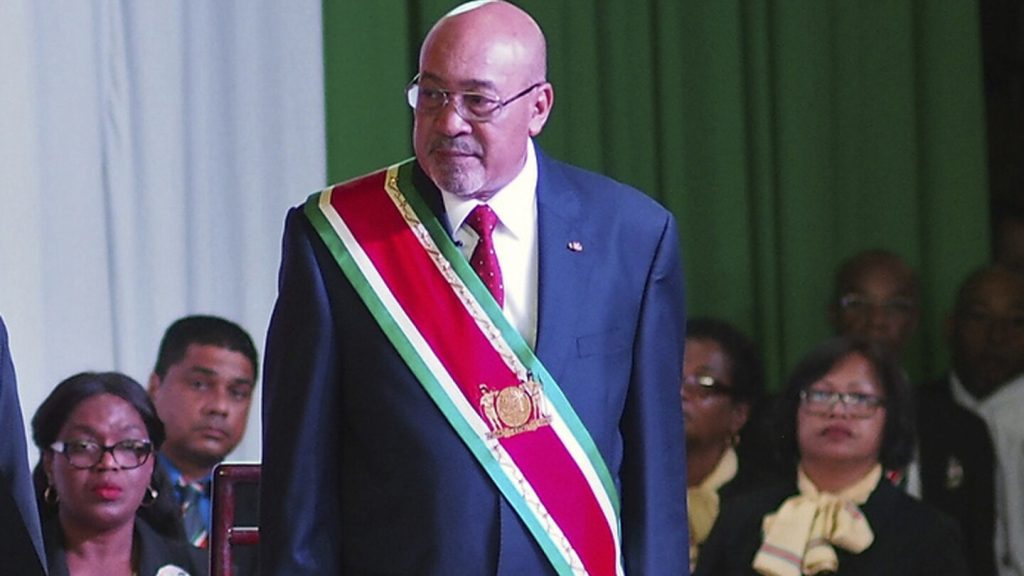Desi Bouterse, a controversial figure in Suriname’s history, has passed away at the age of 79. Bouterse led a 1980 coup in Suriname and later returned to power through elections, despite facing charges of drug smuggling and murder. His death has prompted reflections on his legacy, with President Chan Santokhi calling for calm and order in the nation. Bouterse was known for his charisma and populist social programs, but also faced criticism for his dictatorial tactics and involvement in illegal activities, including the murders of 15 opponents in 1982.
Born in 1945 on a sugar plantation in Suriname, Bouterse left for the Netherlands in 1968 before returning to join the newly formed military of Suriname. He quickly rose to power through a coup in 1980, citing a need for change in the country. However, his military regime soon faced opposition, leading to violent crackdowns and the infamous December Murders in 1982. The killings of 15 individuals, including journalists and teachers, marked a dark period in Suriname’s history and caused international condemnation.
Despite facing backlash from the international community, including the suspension of aid from the Netherlands, Bouterse maintained control over the government through a combination of military force and political maneuvers. He established his own political party and won elections in 2010 and 2015, focusing on socialist policies inspired by leaders like Hugo Chávez. However, his economic mismanagement led to severe inflation and devaluation of the Surinamese dollar, causing hardship for the population.
Bouterse’s rule was marked by a mix of authoritarianism and populism, as he sought to maintain power and avoid accountability for his past actions. He faced legal challenges, including a trial for his role in the December Murders, which lasted for over a decade. Despite attempts to pass an amnesty law to halt the trial, Bouterse ultimately received a 20-year prison sentence in 2019. However, he never served time in jail and continued to wield influence in Surinamese politics until his death.
The death of Desi Bouterse has left a complex legacy in Suriname, with supporters mourning his passing and opponents reflecting on the dark chapters of his rule. His impact on the country’s history, from a military coup to multiple terms as president, has shaped the political landscape for decades. As Suriname navigates the post-Bouterse era, questions remain about how the nation will address its past and move forward towards a more democratic and prosperous future.


